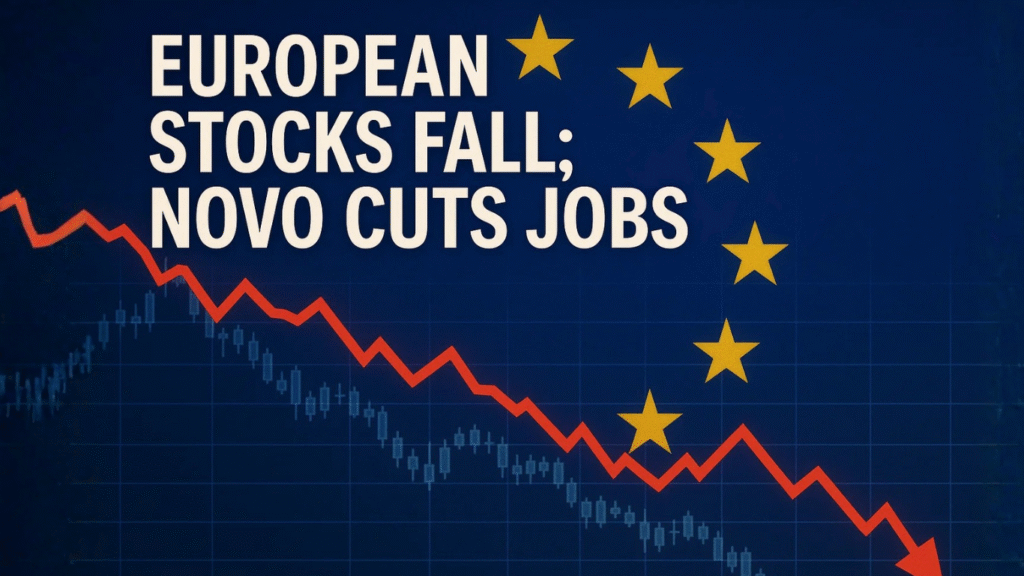European stocks extended losses Wednesday, mirroring a global risk-off trend as investors digested weak earnings, rising volatility, and sharp declines in tech shares worldwide. At 03:15 ET (08:15 GMT), Germany’s DAX index slipped 0.6%, France’s CAC 40 fell 0.4%, and the FTSE 100 in the U.K. dropped 0.2%.
The decline followed a steep 2% drop in the NASDAQ Composite on Wall Street, which triggered broad losses in Asian markets. Japan’s Nikkei 225 tumbled over 2%, while South Korea’s KOSPI plunged nearly 6% before partial recovery. Analysts say investors are reassessing lofty valuations in AI and tech-linked sectors, echoing warnings from Morgan Stanley and Goldman Sachs leaders about unsustainable stock prices.
The sharp correction in tech stocks is prompting investors to rebalance portfolios toward defensive sectors such as healthcare and consumer goods, signaling a growing shift away from speculative growth assets.
Novo Nordisk Leads Corporate Headlines
Earnings season remained in focus, with Novo Nordisk (CSE:NOVOb) at the center of attention after the Danish pharmaceutical giant announced a major restructuring plan. The company will cut 9,000 jobs globally and lowered its full-year profit forecast, citing intense competition in the obesity and diabetes drug markets.
Other notable corporate updates across Europe included:
- BMW (ETR:BMWG): Reported stronger Q3 margins after reducing R&D spending on EVs and highlighted growth prospects in China through new all-electric models.
- Fresenius (ETR:FREG): Raised full-year EBIT growth guidance after a solid quarter driven by its pharmaceutical division and hospital operator Fresenius Helios.
- Siemens Healthineers (ETR:SHLG): Cut its fiscal 2026 earnings forecast, citing tariff pressures and currency headwinds, though revenue growth of 5–6% is still expected.
- Marks & Spencer (LON:MKS): Posted a sharp profit decline following a cyberattack that disrupted online operations and squeezed margins.
These corporate shifts underline Europe’s uneven earnings landscape, where strong industrial and healthcare results contrast with consumer and tech-sector weakness.
Economic Data and Oil Market Developments
Fresh economic data offered mixed signals. German industrial orders rose 1.1% in September, rebounding from a 0.4% decline in August. However, this modest recovery is unlikely to influence European Central Bank (ECB) policy, with interest rates expected to stay unchanged through year-end.
Meanwhile, oil prices stabilized after earlier weakness driven by a sharp rise in U.S. crude inventories. Brent futures slipped 0.1% to $64.40 per barrel, and WTI fell 0.1% to $60.50. The American Petroleum Institute reported a 6.5 million-barrel stockpile surge last week, far exceeding expectations for a 2.4 million-barrel draw, raising concerns about sluggish U.S. fuel demand amid a partial government shutdown that disrupted air travel.
As markets brace for upcoming economic releases, investors remain cautious, weighing corporate earnings against broader signs of slowing global momentum.


